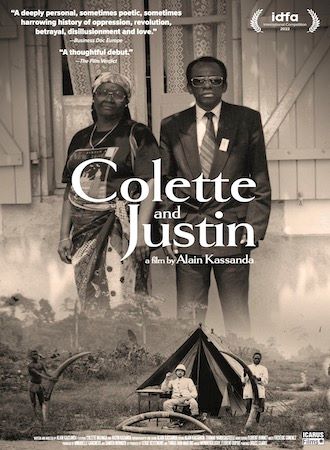
Colette and Justin 2022
Distributed by Icarus Films, 32 Court St., 21st Floor, Brooklyn, NY 11201; 800-876-1710
Directed by Alain Kassanda
Streaming, 89 mins
College - General Adult
Congo, Democratic Republic of the; Documentaries; Postcolonialism
Date Entered: 07/06/2023
Reviewed by Cori Biddle, Student Engagement and Outreach Librarian, Robert E Eiche Library, Penn State AltoonaWith Colette and Justin, the filmmaker Alain Kassanda takes on the task of not only telling the story of the independence of the Democratic Republic of Congo (DRC) in the late 1950s/early 1960s, but also learning about his family’s complicated history during that time – and their role in the independence movement. This personal scope to the story draws the audience in, as it is told largely through conversations with his grandfather (Justin) and grandmother (Colette). He also deftly uses archival film and images to flesh out the time and place of the Belgian colony, and the early days of independence. With this structure, he skillfully interjects his own struggles using primary sources, largely from the colonizers POV, and trying to come to terms with his family’s complicated role in that history.
While making this film, Kassanda learns about his grandfather's time as a civil servant during colonial rule, and his rise to a politician and senator after independence. Transitions like the one DRC had in 1960 are rarely smooth or simple, and the film hints at the unrest, and the colonizers hands in the civil discourse.
Films like this humanize historical events and allow those who lived through them to speak with their own voices. While it may be a bit lacking in explicit dates, names and locations, it’s a great entrance into DCR independence, and the continuing effect that colonization has had on the country even 60+ years later.
This film is highly recommended for educators who want to use personal narratives to help students connect to an event, and also as an entrance into the discussion of how to use primary sources created by colonizers to tell the stories of an indigenous group.
Published and licensed under the Creative Commons Attribution 4.0 license. Anyone can use these reviews, so long as they comply with the terms of the license.